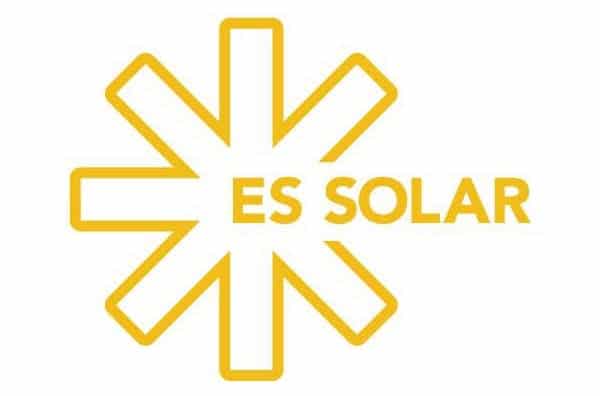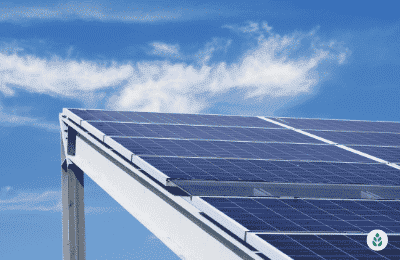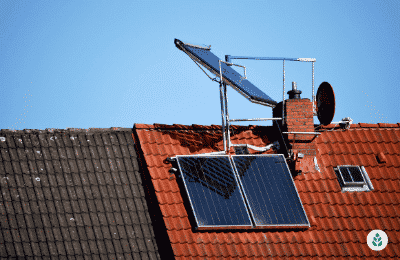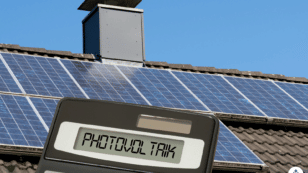
Is Solar Worth It in Utah? (2024 Homeowner's Guide)
Here’s a quick overview of solar viability in Utah:
- Utah ranks 13th in the country for solar installations*
- The average electricity rate is 11.75 cents per kilowatt-hour (kWh)**
- The average solar payback period is 14 years***
- Homeowners are eligible for the Utah Renewable Energy Systems Tax Credit (RESTC) and the federal solar investment tax credit (ITC)
- The average homeowner saves $14,751 over the lifetime of their solar system***
*According to the Solar Energy Industries Association.1
**Data from the Energy Information Administration.2
***Calculated assuming the system is purchased in cash.
Each product and or company featured here has been independently selected by the writer. You can learn more about our review methodology here. If you make a purchase using the links included, we may earn commission.
Utah ranks 13th in the state for solar conversions and provides solar customers with plenty of incentives to make solar panels more appealing. Still, the energy rates in the Beehive State are well below the national average, so many homeowners in the area wonder if converting to solar is worthwhile. Generally speaking, solar is a great option in Utah, but it’s certainly not ideal for everyone. Below, you’ll read about the different metrics you can use to figure out if going solar would be worth it for your home. We’ll also discuss the benefits you’d enjoy from installing solar panels on your home and some things you should keep in mind as you consider going solar.
To speak with an EcoWatch-vetted professional who can help you determine whether solar is worth it for your Utah home, follow the links below.

ES Solar

Local Service
Average cost
Pros
- Representatives are experts on local policies
- Lifetime workmanship warranty
- Outstanding customer service
Cons
- No leases or PPAs
- Energy audits only available 12 months after installation

Blue Raven Solar
Pros
- Industry-leading in-house financing
- Competitive pricing
- Excellent reputation
Cons
- Doesn't offer solar batteries (coming 2022)

Blue Raven Solar
Pros
- Industry-leading in-house financing
- Competitive pricing
- Excellent reputation
Cons
- Doesn't offer solar batteries (coming 2022)
Watch Below: What Should You Know Before Going Solar?
How to Figure Out if Solar Panels are Worth It in Utah
Solar panels are a great option for most homeowners in Utah, but they won’t end up saving money for every household. Below, we’ll discuss some factors you should consider to figure out if solar is a good option for you.
What’s Your Home Electricity Consumption?
The first thing you should look at is your average monthly energy usage. Since solar panels save money by offsetting electric bills, they are more valuable in areas where electricity consumption is high. A good rule of thumb is that solar panels are likely a worthwhile investment if you consume more than 500 kWh per month. You can check your average usage by looking at your past energy bills. The average Utahn consumes around 769 kWh monthly, which puts the state below average for energy consumption but above the benchmark for solar panels being profitable. This means that Utah solar panels are a bit less valuable than panels in other states, but the majority of Utah homeowners will see substantial savings when converting to solar energy.
How Much Is It To Go Solar in Utah?
The price of solar panels in Utah averages around $3.15 per watt, which is below the national average of $3.33. The total price to convert to solar is lower in Utah than most other states because residents need a system size that is smaller than average. The typical homeowner in the area pays around $17,640 for solar panels after the federal solar tax credit is applied. Solar panels provide more value per dollar in areas where smaller system sizes are needed, electricity rates are high and energy consumption is high. Utah is about average in panel price, has lower energy rates than in most states and uses less than the national average amount of energy each month. While most homeowners benefit and save money when installing solar panels, the equipment is a bit less valuable overall in Utah than in other states.
What’s the Payback Period for Solar in Utah?

What Are Average Buy-Back Rates in Utah?
A net metering program is mandated in most states, and these electricity buy-back programs are massively beneficial to solar customers. They allow you to sell back any excess energy your solar panel system produces to your utility company for a credit to your energy bills. Unfortunately, Utah does not mandate net metering, although some electricity providers — like Rocky Mountain Power — still offer it to solar customers. Since many residents will not have net metering and others won’t get credited for outgoing energy at the retail rate, a solar battery is typically required if you want to eliminate your power bill. Solar storage solutions will add thousands on top of your solar panel expense, but they often pay for themselves over time.
How Much Sun Does Your Roof Receive?
Solar panels harvest the sunlight that normally would hit your roof and use it to produce electricity for your home. As such, solar photovoltaic (PV) equipment is more valuable in areas where sunlight is intense and abundant. Utah as a whole experiences around 222 sunny days every year. This is higher than the national average of 205 days, which means most homes in Utah are better suited for solar panels than those throughout the rest of the country. With that being said, not all homes in Utah are right for solar, so you need to assess your property on an individual basis. First, you’ll want to look at the direction your roof faces, as south-facing and west-facing roofs are the best options in the US for their exposure to sunlight. Next, you should check your roof for shading from trees or buildings, as any obstructions to the available sunlight will reduce power production and make your panels less valuable.
What’s the Outlook on Solar in Utah?
Utah is somewhat unique in that the state as a whole generates more energy than it consumes. There are financial incentives in places to make power production more appealing, but many of those incentives apply to the three largest sources of energy in the state, all of which are fossil fuels: natural gas, coal and crude oil. These three sources make up about 95% of the state’s power production.3 With that being said, many residents are turning to solar power and other renewable energy sources, with residential solar conversions having increased in prevalence almost every year for the past decade. Utility-scale solar also has a strong foothold in Utah. Overall, Utah is a very solar-friendly state, despite producing most of its energy with fossil fuels. The policies for solar development are decent, and the market is expected to continue to expand and improve going forward.
Benefits of Solar Energy in Utah
Going solar in Utah affords homeowners plenty of upsides that make converting quite appealing. We’ll discuss some of the most enticing benefits of solar conversion below.
Electricity Bill Savings
The most substantial financial incentive you’ll enjoy when going solar in Utah is the savings you’ll see on your electric bills. If you can eliminate your energy bills — which usually requires a good net metering program or a solar battery in Utah — you stand to save around $90.36 per month or $1,084 per year. These savings are expected to pay off your solar power system expense and then provide additional savings totaling around $14,751. Your savings could be even higher if the electricity rates continue to increase, as they have in the past. Going solar lets you lock in a lower price for power for the 25+ years your system is expected to last and produce energy.
Lower Taxes & Access to Other Incentives
Despite producing most of its energy from fossil fuels, Utah incentivizes solar conversions, as does the federal government. One of the most significant solar incentives available in the Beehive State is the federal solar tax credit, also called the ITC. The ITC totals a massive 26% of your system expense, which averages out to $7,560 in Utah. This amount gets credited to your federal income tax liability for the year your system is installed. There are some additional Utah solar incentives, which we’ll explain briefly below:
- Utah Renewable Energy Systems Tax Credit (RESTC): This is a state tax credit in the amount of 25% of your total system expense up to $800 for the year your system is installed and commissioned. Most Utahns will receive the full $800 in 2024.
- Net Metering: While Utah doesn’t mandate net metering, many of the electric companies in the state offer the program privately. Net metering helps you pay off your system expense more quickly and save more with your panels overall by letting you send power to the electrical grid for compensation.
- Rocky Mountain Power Wattsmart Battery Program: Rocky Mountain Power customers who couple their panels with a solar battery can receive a rebate based on the battery capacity.
Home Resale Value Increase
Many homeowners don’t realize that solar panels increase your home value, which is a massive benefit of going solar. According to research done by Zillow, the average home will go up in value by around 4.1% with the addition of solar panels.4 With home values in Utah averaging around $502,647, the typical homeowner will see a jump in property value of approximately $20,608.5 You shouldn’t expect this bump in home value if you sign a solar lease or power purchase agreement (PPA). If you want to enjoy this upside of solar panels, you will have to use a cash purchase or a solar loan to acquire your solar energy system.
Clean, Renewable Energy
Of course, not all of the benefits of going solar are financial in nature, and some of the most appealing for some residents are environmental. By converting to clean energy, you’ll be reducing your carbon footprint, emissions and pollution by limiting your use of fossil fuels. Your energy independence will also mean you’ll be able to avoid future hikes in energy prices, which are expected.
What to Look Out For When Considering Solar in Utah
Determining your home’s solar viability is a crucial first step to going solar, but there are some other things you need to think about and decide on before committing. Below are some additional considerations for you to make as you move toward solar conversion.
Upfront Fees

Payback Period
Using a solar calculator or having a solar panel installation company do the calculation for you, you can determine your solar panel payback period. The average payback period in Utah is 14 years, with a standard range of 11 to 17 years. If your payback period is longer than 17 years but under 25 years, you’ll still save money, but your return on investment (ROI) will be lower than average in your area.
Net Metering Policies in Utah
Net metering is not mandated in Utah, but many utility companies still offer this incentive to their customers. You should contact your power provider for information on its net metering program before you commit to solar. Net metering usually isn’t a make-or-break factor, but you might need to consider a solar battery if you don’t have net metering available or have a suboptimal policy with a buy-back rate that’s below the retail rate.
Pending Policies & Changes to Incentives
The solar industry is always changing and improving, so it’s important to remember that all of the policies mentioned above are subject to change as well. New rebate programs could pop up, and existing incentives could be altered or disappear entirely in the future. It’s generally not advisable to wait for more appealing incentives to become available, but you should check for updates and changes to policies and incentives before signing anything.
Weather & Climate in Utah
Some Utah residents worry that the frequent cloudy days will mean that solar panels won’t be worth the investment in the area. In fact, Utah experiences more sunny days than most US states per year, meaning it’s better than average for solar conversion in terms of sunlight availability. Others are understandably concerned about the amount of snowfall in Utah, which is about double the national average. It’s true that snow-covered panels will produce little to no electricity. However, there’s still plenty of sunlight to produce energy in the area, and the snow will just serve to keep dust, pollen and debris off your panels, all of which can reduce overall efficiency.
Companies Pushing Solar Leases or PPAs
Finally, you need to be keenly aware that not all solar companies are equal, and some are in the industry purely to turn a profit. You should be on the lookout for companies advertising “free panels,” as this is really just a marketing tactic to get you to sign a solar lease. Solar leases are far less appealing than they appear, as they don’t bump up your home value, they don’t let you take advantage of the federal tax credit and they save you much less money over time. There have been numerous reports of solar scams in Utah as well. Some companies in Salt Lake City have been cited as using high-pressure sales tactics and claiming unrealistic savings in an effort to defraud unwitting homeowners.6 There have also been reports from customers who are promised payoff periods and energy savings almost immediately — usually with solar leases — only to find that the savings are significantly lower than stated.7 The bottom line is that you should only ever work with a reputable and vetted solar company to avoid any problems.
Wrap Up: Is Solar Worth it in Utah?
Solar conversion is more popular in Utah than in most other states, and for a good reason: the majority of homeowners in the Beehive State save a significant amount of money when installing solar panels. However, solar isn’t right for everyone, so you need to assess your home’s solar viability before committing. Some things you need to consider during your calculation include your average monthly electric bills, the system size you need, the net metering program offered by your utility company, the direction your roof faces, shading on your property, and more. We suggest calling a reputable solar installer to help you figure out if solar panels will actually save you money.
See also: See how much you can save by going solar with the EcoWatch Solar Calculator
Read More About Going Solar
- What Are the Most Reliable Solar Companies in Utah?
- What Solar Incentives Are Available in Utah?
- Find Cost Savings on Solar in Utah
The cost information presented in this article is derived from a comprehensive analysis, incorporating data from multiple industry sources. The average cost per watt per state was calculated based on figures from Consumer Affairs, Energy Sage, and Berkeley Lab’s Electricity Markets & Policy Department. Additionally, monthly energy consumption and the average monthly cost of electricity were sourced from the U.S. Energy Information Administration, ensuring a well-rounded and accurate representation of the information presented.
Frequently Asked Questions
We get questions from Utah residents all the time about how to determine if solar is right for them. Below are some of the things we get asked most often, along with our responses. If you have specific questions that aren’t answered here, reach out to our team of solar experts at solar@ecowatch.com.
The average solar panel payback period in Utah is around 14 years, and most residents see their energy savings pay for their solar systems between 11 and 17 years. These numbers are only averages, and your payback period can vary quite a bit, depending on several factors. Some things that can affect your payback period include your average monthly electric bills, your home’s energy efficiency, your home’s orientation, the net metering policy you have access to, and more.
Most of the time, yes. Installing solar panels is expensive, but they also save you quite a bit of money on your electric bills, especially if you have a favorable net metering policy or a solar battery installed alongside your panels. The average Utahn can save around $90.36 per month on electricity, which averages out to a potential annual saving of $1,084. The average Utah homeowner saves $14,751 with their solar panels after the solar panel system pays for itself.
Yes, your home value will increase as a result of installing solar panels on your home. Estimates from Zillow state that the typical jump in value is around 4.1%. In Utah, where the average home is valued at $502,647, that’s a standard value increase of about $20,608.
Yes, you do need permits for solar panels in the State of Utah. Permits add a bit to your total solar system expense and can delay the installation timeline, but they’re well worth it because they help ensure a safe installation. Most of the time, your solar company will deal with the permitting process for you.
It is possible to install your own solar panels in Utah. However, it’s not recommended. Putting in a solar energy system yourself is dangerous and puts your home and photovoltaic equipment at severe risk of damage. It’s usually a better idea to let a professional and experienced installer handle the process for you.
Top Solar Installers in Utah Cities
Comparing authorized solar partners
-
- Representatives are experts on local policies
- Lifetime workmanship warranty
- Outstanding customer service
- No leases or PPAs
- Energy audits only available 12 months after installation
Not RatedOutstanding Local Installer
Having trouble deciding? Click below and use our process to receive multiple quotes instead:

 233k
233k  41k
41k  Subscribe
Subscribe 





